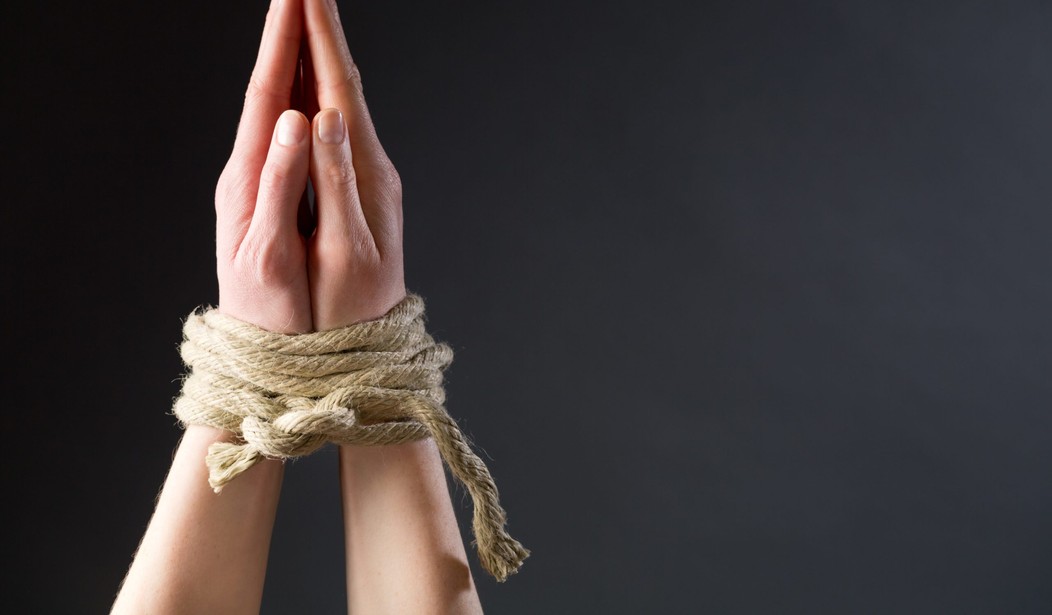Two evangelical Christian organizations released a small group study guide for churches to delve into the meaning, limits, and implications of religious liberty. The Ethics & Religious Liberty Commission (ERLC) of the Southern Baptist Convention and LifeWay Christian Resources released a six-week small group study, Religious Liberty: How the Gospel Shapes Our First Freedom.
“Our goal in producing this curriculum is to equip churches to see religious liberty as it is—grounded in the gospel,” Russell Moore, president of the ERLC, declared in a statement. “In an age when religious liberty is increasingly imperiled we all need to be reminded that religious liberty isn’t a partisan political idea. It’s a fundamental part of being made in the image of God, and being created with a conscience that is answerable ultimately to Christ, not Caesar.”
“Separating church and state doesn’t mean we separate religion and politics,” Andrew T. Walker, director of policy studies at the ERLC and a principal author of the curriculum, told PJ Media in an interview Monday. “Christianity teaches a worldview, it teaches ethical and moral obligations, and there’s no place in scripture that bifurcates or divides our calling as Christians from our calling as citizens.”
Walker explained that the six-week small group study covers broad themes: the Bible, the culture, the public square, the common good, mission, and responding to objections about religious liberty.” He also presented four myths about religious liberty and the response to each of them.
First, the ERLC policy director insisted that religious liberty is not “a kind of blank check to do whatever you want.” He pointed to the arguments that religious freedom is often used as a “license to discriminate,” arguing that simply is not the case.
“Religious liberty is not a blank check to do anything and everything that you would want under the rubric of religion,” Walker explained. “There are limits to religious liberty to the extent that duly recognized legislative bodies have the ability to limit it. You can’t engage in child sacrifice in America under the rubric of religious liberty,” for example.
At the same time, however, religious liberty is not limited to “the four walls of a synagogue or a mosque or a church.” Walker noted that the phrase “freedom of worship” is “becoming more common in public discourse,” and insisted that religious liberty is much broader than this limited freedom.
“Religious liberty is to be lived out publicly,” since “religion is where we work out our moral bearings and our ethical and moral obligations and duties.” It must be lived out in public as well as private, because religion teaches the bedrock morality which undergirds all of society.
This is not just a subtle argument to attack LGBT rights, Walker insisted. Many think of religious liberty as “the last resort tool that conservative Christians have against LGBT rights in the public square,” but the ERLC policy director dismissed this idea as “patently absurd.”
He pointed to the cases of the florist Baronelle Stutzman and the bakery owners Aaron and Melissa Klein, each of whom was fined for refusing to take part in a homosexual wedding, despite their willingness to do regular business with LGBT people. “All of these persons were willing to serve LGBT persons in their individual capacity,” Walker noted. “What they objected to was using their talents — and what I would consider their speech — in service of a same-sex wedding ceremony.”
When Stutzman and the Kleins refused to serve a homosexual wedding, they were not denying these gay and lesbian couples their rights – they were simply refusing to add their support to a public event they found objectionable. This difference is important, because it is exactly this kind of limited rejection which religious liberty should protect, Walker argued.
Finally, the ERLC policy director addressed the most pernicious myth of all — that religious liberty is just an excuse to “protect Christian privilege or Christian dominance, to exercise power over others.” This is exactly the opposite of what religious liberty really means.
“Religious liberty used to favor one group over another is actually how religious liberty is undermined,” Walker explained. He argued that religious liberty is actually an important right for all people — even the non-religious. Each person pays homage to an ultimate “authority, adoration, and authenticity,” regardless of whether that is religious or not.
“Everyone ought to have maximal liberty to do what they please,” Walker declared. “The default has to be liberty. Religious liberty is something that protects liberty for all persons.”
To some extent, the ERLC policy director endorsed a kind of libertarianism — “in so far as it is an idea that promotes the ability of people to live in accordance with sound reason and virtue, free from government.” He did warn against “using libertarianism as a blank check to say you can do whatever you want,” however.
The ERLC-LifeWay curriculum does not address the controversial issue of the Johnson Amendment, Walker said. He said he personally opposed the regulation (which prevents tax-exempt churches from endorsing political candidates or causes), “but at the same time, I don’t think churches ought to be overtly political from the pulpit.”
Walker argued that pastors “should educate on codes of conduct and worldview,” but refrain from telling their congregants to “support candidate X.” He added that any mention of the Johnson Amendment would be “a distraction from the overall goal of the curriculum,” which is to present a general and basic understanding of religious freedom, rather than advocating for specific issues.
Ultimately, the goal of religious liberty is the same goal as Christianity — “to live out our faith in accordance with the internal transformation that the Holy Spirit is achieving inside of us.” What exactly that looks like is up to God and the conscience of every religious believer.
What that looks like for non-Christians will also vary from person to person, and the government should be as permissive as possible in this area of human freedom.









Join the conversation as a VIP Member